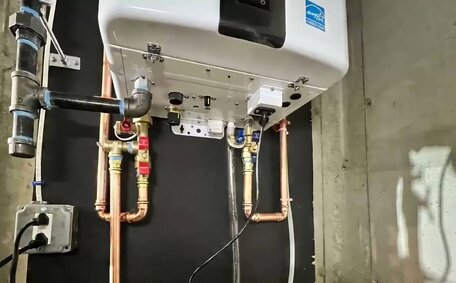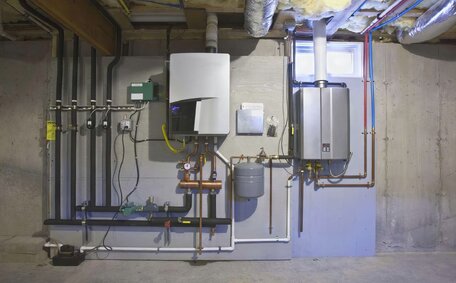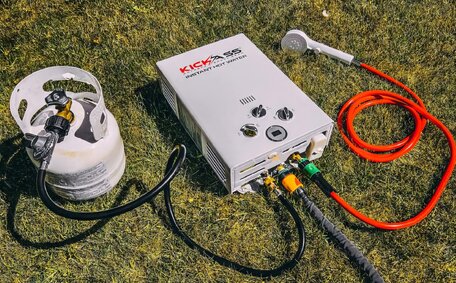Identifying That You Have a Leak
There are a few key signs that may indicate you have a water leak in your house:
- A sudden surge in your water bill that does not align with your regular usage patterns
- The persistent sound of running water when all taps and appliances are turned off
- Unexplained damp patches on walls, floors, ceilings, or in the garden can indicate hidden leaks.
- Low water pressure
Using water meters is an effective strategy; it’s essential for property owners to frequently monitor their meter readings and recheck after 30 minutes for any discrepancies indicating leaks. Please be aware that any change in the reading usually signifies a leak, with a significant increase suggesting a larger leak.
Further investigative steps include Regularly inspect your water system and property for early detection of leaks:
- Inspect taps, pipes, appliances, and surfaces for signs of leaks.
- To test for toilet leaks, add food colouring to the tank and check for colour in the bowl after 30 minutes.
- Post-rainfall, inspect your roof, gutters, and property exterior - soggy soil or water seepage could mean underground pipe leaks.
If you suspect or confirm a leak, If a leak is suspected, contact a licensed plumber or your body corporate immediately to address and prevent further water damage.
Locating the Source of the Leak
To locate a potential leak inside your home, Methodically inspect common leak sources as the property owner typically bears responsibility for fixing them. Here are the key places where leaks often occur and what markers to look for:
Faucets and Pipes
Examine all faucets and pipes around your home, focusing on common leak-prone areas such as under sinks and behind appliances, checking for drips, wetness, or mineral buildup. Inspect connections and fittings where pipes join for potential leaks. Listen closely for the sound of water running in places where there should be silence.
Toilets
Toilets that run nonstop suggest a leak in the internal mechanisms, which may require replacement parts.
Water Heaters
Check for leak your water heaters and adjoining pipes/valves may have for signs of moisture or corrosion. Frequent on and off cycling of electric pilot lights can flag a minor leak that, if unnoticed, may cause severe issues.
Outdoor Faucets, Irrigation
Examine your garden taps, irrigation systems and pool pumps, as Underground pipe damage often leads to leaks, which can cause further issues in the garden. Watch for unexpected wet patches on your lawn or driveway signalling water around your property, which could denote a potential leak.
If inspections do not reveal the leak source, seek immediate professional assistance. Given that concealed leaks impact many homes and can cause serious damage before detection, immediate action is crucial.
Immediate Actions to Stop the Leak
Upon detecting a leak, swift action is necessary to minimise potential home damage. Here are the key steps:
- Locate the main water stop tap, often near the meter tap, and turn it off to stop the water supply.
- Turn off electricity to any water-connected appliances to mitigate hazards.
- Open all taps to relieve pressure and uncover any hidden leaks.
- Collect leaking water in containers until repairs can be made.
- Call a plumber immediately for urgent assistance, detailing the leak’s location and your taken measures.
- For major leaks causing flooding, contact us and your insurer without delay.
Early intervention to check and address leaks can prevent significant future damage. This step allows for the necessary repairs to be made in response to the concerning presence of water in your property.
Controlling Water Damage
Once a leak has been stopped, it’s vital to control any water damage and prevent further issues:
Remove Excess Water
Employ your sump pump to extract pooled water your precautions have gathered around the leak area and from any soaked materials. Absorb any residual moisture using towels.
Protect Surroundings
Shield any areas near electrical wiring, including other components or appliances, with plastic sheeting to stave off the risks of electrocution or short circuits. Check walls/floors for hidden moisture.
Increase Airflow
Open windows, use portable fans and dehumidifiers to actively dry out the area. This aids in preventing mould and mildew, especially near appliances like washing machines, fostering a healthier living environment.
Make Repairs
For temporary leak patches until plumbers arrive, use silicone-based tape wraps, pipe clamps and drain plugs appropriately. Avoid spending valuable time on do-it-yourself repairs.
Prompt water removal and drying is crucial to reduce permanent structural damage and potential health hazards. Make safety the priority and get in touch with the professionals using your water expertise if in any doubt.
Seeking Professional Help for Repairs
There are circumstances where water leak home repairs are best left to qualified professionals. Licenced plumbers can do more than just diagnose issues; they perform expert repairs, plus are insured if further damage does occur.
We recommend contacting Croydon Park Plumbing on 1300 349 338 or jobs@croydonparkplumbingservices.com.au for assistance if:
- You’ve attempted DIY fixes but the leak persists
- The leak source can’t be located after methodical checks
- Significant flooding or water damage has already occurred
- The leak is situated in difficult to access areas
- Major pipe repairs, replacements or rerouting are needed
- Specialist equipment like thermal imaging, leak correlation or pipe inspection cameras are required
Our certified plumbers, background-verified for your peace of mind, are available 24/7 to assess your situation and carry out required repairs. We always provide upfront quotes so you know the full costs involved before authorising repairs to commence.
Conducting Long-Term Leak Prevention
To prevent water leaks in the long run, your home can benefit from implementing some routine maintenance tasks:
Annual Inspections
Conduct checks of all water fixtures and appliances at least yearly. Look closely for signs of wear, corrosion and small drips which can warn of impending leaks. Examine your hot water systems, pipes, taps, toilets and more for inspection purposes only, as specialised repairs should be left to the experts.
Update Old Plumbing
If your plumbing system is over 20 years old, consider a professional upgrade. Newer piping materials last longer and are less prone to cracks and burst joints over time.
We advise getting a 1300 349 338 to assess your plumbing every 5 years. They can use thermal imaging to identify concealed piping issues and may recommend repairs or replacements to stop problems before leaks eventuate.
Maintain Water Pressure
To mitigate excess pressure that can lead to pipe and seal failures, confirm the presence of a functional control valve, such as a pressure limiting valve, on your water supply line. Set around 500 kPa, this protects your water system.
Stay vigilant in watching for leak signs - prevention saves extensive repairs later on. Croydon Park Plumbing’s qualified technicians can also help diagnose vulnerabilities.
Interior Plumbing Issues
Internal water leaks inside the walls or under floors can cause extensive damage if left unchecked, and no one wants the stress and cost associated with these repairs. Though not always visible, indicators include:
- Bubbling or peeling paint and plaster on walls/ceilings
- Soft, damp carpets or moisture under floor tiles
- Persistent musty odours indicating mould mildew proliferation within your walls
- Creaking walls floors and drywall from water saturation
To find out more about leaks, consider that appliances such as dishwashers, washing machines, and refrigerators could lead to penetrating walls or cabinets. Watch for rust stains, water under units, or sodden materials.
As internal leaks spread out of sight, structural weakness, rotting framing, mould hazards and electrical dangers develop over time. Immediate intervention is imperative to avoid situations that can result in more complex issues - contacting Croydon Park Plumbing on 1300 349 338 is advised.
Our leak detection equipment (thermal imaging cameras, moisture metres) accurately pinpoint concealed leaks up one metre inside walls with minimal property impact. From there, isolated repairs or full piping replacements may be recommended to reliably stop the problem.
Exterior Above-Grade Leaks
Exterior water leaks located above ground level typically occur due to problems with outdoor taps, irrigation systems or exposed sections of water supply pipes running along external walls. Signs to look out for include:
- Pools of water coming from the base of exterior walls
- Persistent wet patches or areas of dead grass on lawns
- Loose bricks, eroded mortar or cracks around outdoor faucets
- Corroded, leaky or burst pipes next to the home’s foundation
Unresolved exterior leaks can lead to issues more than surface-level problem, as they ultimately damage your property by causing water to saturate the ground beneath your abode over time. This causes subsidence, shifts in your building foundations and damages your property’s structure. It also invites termite infestations.
As a temporary measure, one can apply a makeshift solution: switch off water supply to the problem area and seal cracks or pipe leaks with silicone sealant designed for plumbing use. Nonetheless, correctly diagnosing and permanently fixing the underlying issue requires a professional plumber’s expertise.
For swift resolution to external water leak concerns and repair solutions, please don’t hesitate to contact our team through your chosen method of communication. Our plumbers have the advanced tools and know how the pipes run to locate issues and stop leaks reliably.
Exterior Below-Grade Leaks
Leaks from underground water pipes or main lines can be problematic to diagnose and repair. As they are concealed below ground level, checking your meter for unusual activity is a sign of an exterior below-grade leak:
- Visible water pooling near foundations after rain
- A persistently soggy lawn or area of subsidence
- Higher than normal water usage indicated by your water meter readings
- Receipt of an unexpectedly high water bill
This type of leak, frequently uncovered during a comprehensive standard format plan inquiry, can be caused by factors such as tree roots or ground shifts affecting exterior pipework. If neglected, foundational fissures and potential collapses can caused by water erosion could unfold beneath the premises detailed in your building format plan.
Owing to the below-grade leaks being within the perimeter of the homeowner, the property owner is responsible for remedying them, bearing responsibility for diagnosis and repair costs. We recommend contacting a professional plumber like Croydon Park Plumbing on 1300 349 338 for prompt attention if an exterior underground leak is suspected.
Our experienced team is qualified with sophisticated tools for water leak detection leveraging up-to-date technology and accurately pinpoint the position of concealed pipe issues. From there, depending on your situation, we may discuss a leak allowance before recommending the necessary pipe repairs, to resolve the problem before severe structural damage sets in.






